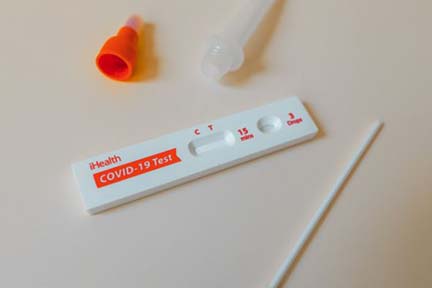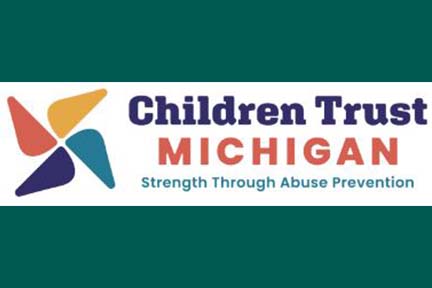|
Press Release
FOR IMMEDIATE RELEASE: Aug. 8, 2022
MDHHS CONTACT: Chelsea Wuth, 517-241-2112, [email protected]
MDARD CONTACT: Chelsea Lewis-Parisio, 517-331-1151, [email protected]
EGLE CONTACT: Jeff Johnston, 517-231-9304, [email protected]
New tool available to track harmful algal bloom reports
LANSING, Mich. – The Michigan Department of Health and Human Services (MDHHS), Department of Environment, Great Lakes, and Energy (EGLE) and the Michigan Department of Agriculture and Rural Development (MDARD) are reminding Michiganders to be aware of the potential for harmful algal blooms (HABs) in bodies of water. To help the public know where HABs have been reported, a new Michigan Harmful Algal Bloom Reports map is now available online at Michigan.gov/HABsMap.
HABs form due to a rapid growth of cyanobacteria, also called blue-green algae, which are naturally found in lakes, rivers and ponds. Toxins found in cyanobacteria (cyanotoxins) that can be found in blooms can be harmful to people and animals.
“The new Michigan Harmful Algal Bloom Reports map is an exciting tool to increase awareness of HABs and to help prevent related illness,” said Dr. Natasha Bagdasarian, MDHHS chief medical executive. “If you may have had contact with or swallowed water with a HAB and feel sick, call your doctor or Poison Control at 800-222-1222. If symptoms are severe, get emergency medical attention as soon as possible.”
To provide more information on HABs statewide, MDHHS and EGLE developed the Michigan Harmful Algal Bloom Reports map. The map, which will be updated weekly from June to November, shows bloom reports that have been verified by EGLE and the results of any cyanotoxin tests.
Not all HABs in Michigan are reported to EGLE and some may not be included on the map. HABs can move around, disappear and reappear – meaning that HABs may be present in waterbodies, but not present on the map. Before going in any water, MDHHS recommends that you always look for and keep away from visible HABs or scums and that people and pets stay out of water in affected areas.
The occurrence of cyanobacteria and their toxins typically takes place in the summer and fall and has been confirmed in lakes across Michigan in previous years. In 2021, 79 harmful algal blooms in 43 counties were reported to EGLE.
HABs look like water that has algal scums or mats, which looks like spilled paint or pea soup or has colored streaks on the surface. Visit the HAB Picture Guide for examples of HABs, as well as other algae and plants mistaken for HABs. HABs usually occur from May through October, with most occurring in August and September. HABs can last for days or weeks and change in size, location and toxicity.
Breathing in or swallowing water with HAB toxins may cause illness, such as runny eyes or nose, asthma-like symptoms, difficulty breathing, vomiting, diarrhea, weakness, numbness, headaches or dizziness. Skin contact may cause rashes, blisters or hives.
What should people do if they think they have found a HAB?
If people think they have found a HAB or have any suspicion of a HAB:
- Do not let people, pets or livestock in the water or near the shore in affected areas.
- Always rinse off people and pets after contact with any lake water.
- If there is a posted HAB advisory or closing, follow its instructions.
- You can still use unaffected areas of a lake unless a bloom covers most of the lake.
- Report suspected HABs to EGLE by e-mailing [email protected] with pictures of the suspected HAB. Reports can also be received via phone at 800-662-9278.
HABs and animal health
Animals, especially dogs, can become ill or die after contact with HABs. Signs of illness can include vomiting, diarrhea, staggering and seizures. To prevent illness in dogs, keep them out of areas with scums or discolored water, rinse them off after contact with any lake water and bring clean, fresh water for them to drink. If a pet or livestock animal become sick after contact with a suspected HAB, call a veterinarian right away.
Animal illness due to HABs is reportable to MDARD. To report cases, submit a Reportable Disease Form (found at Michigan.gov/dvmresources under ‘Reportable Diseases’) or call 800-292-3939.
How to help prevent HABs
To reduce and prevent HABs, Michiganders should learn about pollution from excess nutrients, such as nitrogen and phosphorus. Excess nutrients may come from fertilizers, detergents, sewers and failed septic systems.
To decrease nutrients going into water:
- Use phosphate-free detergents.
- Dispose of pet waste properly.
- Apply fertilizer only when necessary, at the recommended amount. A buffer should be left when applying fertilizer near a lake or stream.
- Promote the use of natural shoreline, including growing native vegetation along the water’s edge.
- Join with a local organization or residents to develop or update a watershed management plan, which identifies pollutants causing water quality problems, sources of those pollutants and recommendations to reduce pollutant inputs.
Contacts for HAB questions
- The new Michigan Harmful Algal Bloom Reports map can be found at Michigan.gov/HABsMap.
- Visit Michigan.gov/HABs for more information on HABs.
- For more information on HABs and your health, call MDHHS at 800-648-6942.
- For more information on HABs and pets or livestock, call MDARD at 800-292-3939.
- For more information on HABs and the environment, call EGLE at 800-662-9278.
|








